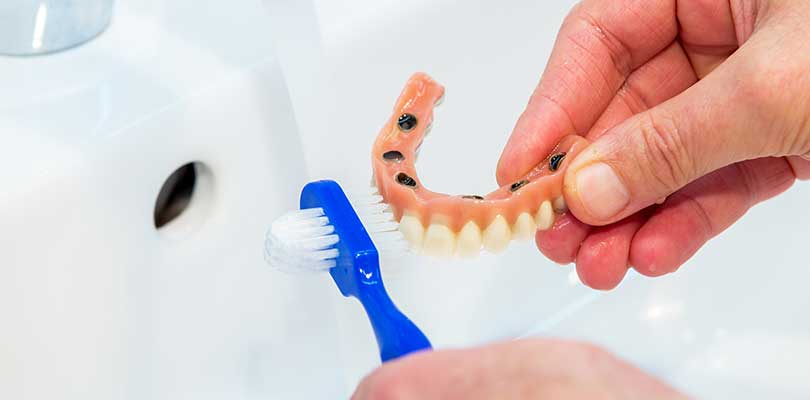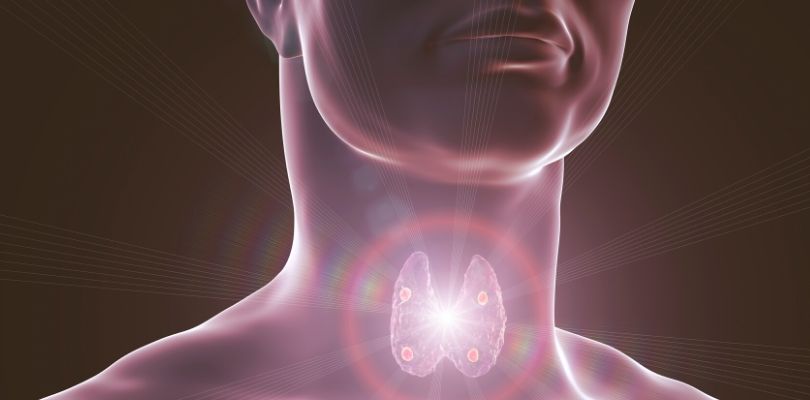What You Need to Know About Thyroid Problems
The world is full of problems, and hopefully, a thyroid disorder isn’t one of yours. If there was an issue with your thyroid, would you be aware of it? You need to be wary when it comes to thyroid problems, as this little butterfly-shaped gland is in charge of more things than you may realize.
The Thyroid Gland
The thyroid gland is a player in the endocrine system whose major responsibility is to secrete the hormones essential for growth, development, and metabolism. The thyroid hormones, thyroxine (T-4) and triiodothyronine (T-3), help regulate all body functions.
Thyroid hormones control functions such as body temperature, heart rate, blood pressure, breathing, and skin maintenance. These hormones impact functions such as brain development in children and fertility in adults.
T-3 and T-4 also help break down food and change it into energy and keep the nervous system working properly. The thyroid is a vital part of our day-to-day functions.
The Role of Iodine
For the thyroid to remain healthy, it needs a constant supply of iodine to produce hormones. The body does not produce iodine on its own; it relies on your diet to provide a source of iodine.
Eating certain foods such as dairy products, seafood, meat, eggs, and seasoning with iodized table salt, or taking a multivitamin with iodine will ensure you get your required daily amount. Beware: taking too much or too little iodine can make the thyroid produce the wrong amount of T-3 and T-4.
How the Thyroid Gland Works
The thyroid gland works with the pituitary gland – which is an accountant that ensures thyroid hormone levels balance out. Thyroid function starts when the brain tells the pituitary gland to release a thyroid stimulating hormone (TSH).
The amount of TSH released depends on the levels of T-4 and T-3 already present in your blood. The pituitary takes inventory of hormone levels and regulates how much hormones the thyroid produces and releases to the body. More TSH is released if the T-4 and T-3 levels are low, and less TSH is released if the hormone levels are high.
The Two Major Types of Thyroid Disorders
According to The Thyroid Foundation of Canada, thyroid disorders affect 0.8-5 percent of the population and are more common in women than men.
The main conditions in most thyroid disorders are hypothyroidism (underactive thyroid) and hyperthyroidism (overactive thyroid). Each person’s experience is not uniform; symptoms can range from few to many.
Keep in mind that some thyroid disorders develop slowly and take time to disappear after you start treatment.
Hypothyroidism – Causes and Symptoms
When an insufficient amount of thyroid hormone is produced and doesn’t meet the needs of the body, it’s referred to as hypothyroidism. This insufficiency can cause many functions of the body to slow or shut down.
Symptoms of hypothyroidism can include:
- A weak/slow heartbeat
- Goiter (increased size of the thyroid)
- Muscular weakness and constant fatigue
- Depression
- Sensitivity to cold
- Slowed mental processes and poor memory
- Constipation
- Puffy and/or dry skin
Jaw pain may be an emergency; other times there may be reasons that, while annoying, are not life threatening.
Causes and Risk Factors for Hypothyroidism
Untreated hypothyroidism can lead to heart problems, mental health issues, damage to peripheral nerves, infertility, and birth defects.
The most common cause of hypothyroidism is Hashimoto thyroiditis, an autoimmune condition where antibodies destroy parts of the thyroid gland.
Another cause can be the treatment of hyperthyroidism as patients are often treated with medications to reduce/normalize their thyroid function, but an overcorrection can result in permanent hypothyroidism.
Other causes include thyroid surgery, radiation therapy used to treat head and neck cancer, iodine deficiency, and certain medications, such as lithium, can also contribute.
People who are at risk for hypothyroidism can include:
- Women older than sixty
- Those who have an autoimmune disease or family history of thyroid disease
- Anyone who has had thyroid surgery
- Those previously treated with radioactive iodine or thyroid medication
- Women who have been pregnant or had a baby within the last six months
- Anyone who has had radiation to the neck or upper chest
Treatment of Hypothyroidism
Treatment for hypothyroidism is usually permanent. Hypothyroidism is typically treated with a synthetic thyroid hormone; the standard is an oral medication.
The medication bumps up your thyroid hormone levels to an adequate supply and reverses the symptoms of hypothyroidism.
After starting treatment, your fatigue should diminish, and there will be a noticeable difference in your energy after a couple of weeks.
Hyperthyroidism – Causes and Symptoms
Hyperthyroidism occurs when too much thyroid hormones are secreted, and the body’s functions speed up. Usually, hyperthyroidism can be challenging to diagnose, as the vast array of symptoms mimic several other health problems.
Symptoms can include:
- Rapid/forceful heartbeat (tachycardia)
- Tremor
- Muscular weakness
- Weight loss (in spite of an increased appetite)
- Goiter
- Restlessness
- Anxiety
- Sleeplessness
- Profuse sweating and heat intolerance
- Diarrhea
- Eye changes
Patients often feel unusually nervous or irritable. Hyperthyroidism can lead to heart problems, brittle bones, eye problems, red/swollen skin, and thyrotoxic crisis (your symptoms become suddenly intensified).
Causes and Risk Factors for Hyperthyroidism
Hyperthyroidism can be caused by a toxic adenoma, Plummer’s disease (a toxic multinodular goiter), and thyroiditis. Another uncommon problem that can contribute is an autoimmune disorder called Graves’ disease.
Hyperthyroidism tends to run in families. If there is a history of hyperthyroidism in your family, consult your physician to see if you are at risk. Hyperthyroidism is also more common in women than men.
Treatment of Hyperthyroidism
There are several treatment options available to combat hyperthyroidism.
Treatment can include anti-thyroid medication and radioactive iodine. This approach slows the production of T-4 and T-3 hormones. Alternatively, surgery to remove all or part of the thyroid is a consideration. Your physician will help determine the best course of action for your particular case.
There is always a bright side: most thyroid disorders are treatable. Monitoring and treatment may be lifelong; however, thyroid problems can be managed with little impact on your everyday life.







